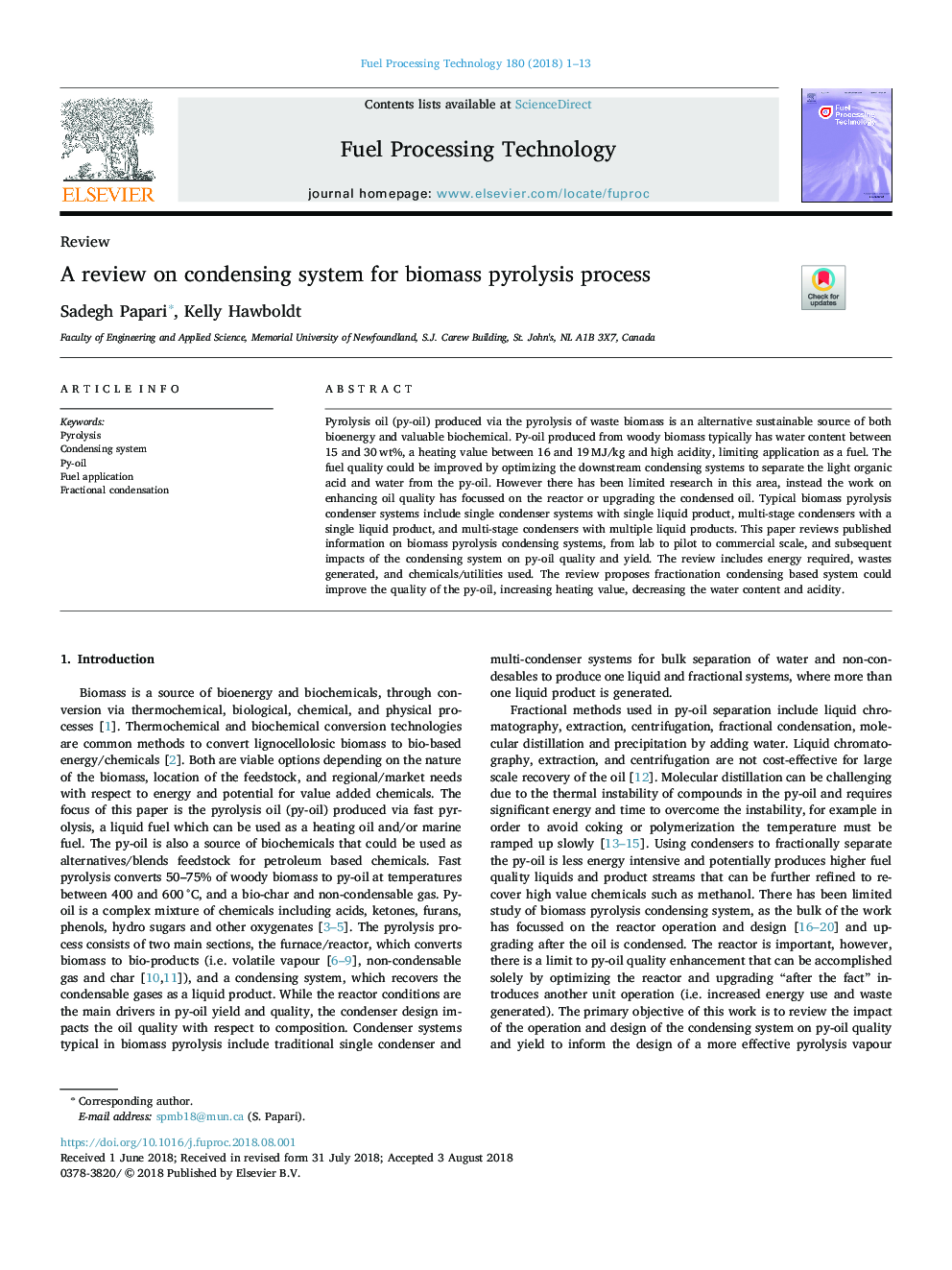| Article ID | Journal | Published Year | Pages | File Type |
|---|---|---|---|---|
| 6656251 | Fuel Processing Technology | 2018 | 13 Pages |
Abstract
Pyrolysis oil (py-oil) produced via the pyrolysis of waste biomass is an alternative sustainable source of both bioenergy and valuable biochemical. Py-oil produced from woody biomass typically has water content between 15 and 30â¯wt%, a heating value between 16 and 19â¯MJ/kg and high acidity, limiting application as a fuel. The fuel quality could be improved by optimizing the downstream condensing systems to separate the light organic acid and water from the py-oil. However there has been limited research in this area, instead the work on enhancing oil quality has focussed on the reactor or upgrading the condensed oil. Typical biomass pyrolysis condenser systems include single condenser systems with single liquid product, multi-stage condensers with a single liquid product, and multi-stage condensers with multiple liquid products. This paper reviews published information on biomass pyrolysis condensing systems, from lab to pilot to commercial scale, and subsequent impacts of the condensing system on py-oil quality and yield. The review includes energy required, wastes generated, and chemicals/utilities used. The review proposes fractionation condensing based system could improve the quality of the py-oil, increasing heating value, decreasing the water content and acidity.
Keywords
Related Topics
Physical Sciences and Engineering
Chemical Engineering
Chemical Engineering (General)
Authors
Sadegh Papari, Kelly Hawboldt,
